
Majestic and powerful, birds of prey dominate America’s skies with their keen eyesight, sharp talons, and unparalleled hunting skills. From soaring eagles to agile hawks, these raptors inspire awe and respect as they patrol the skies in search of their next meal. These are ten fearsome birds of prey flying America’s skies and how they hunt.
1. Red-tailed Hawks
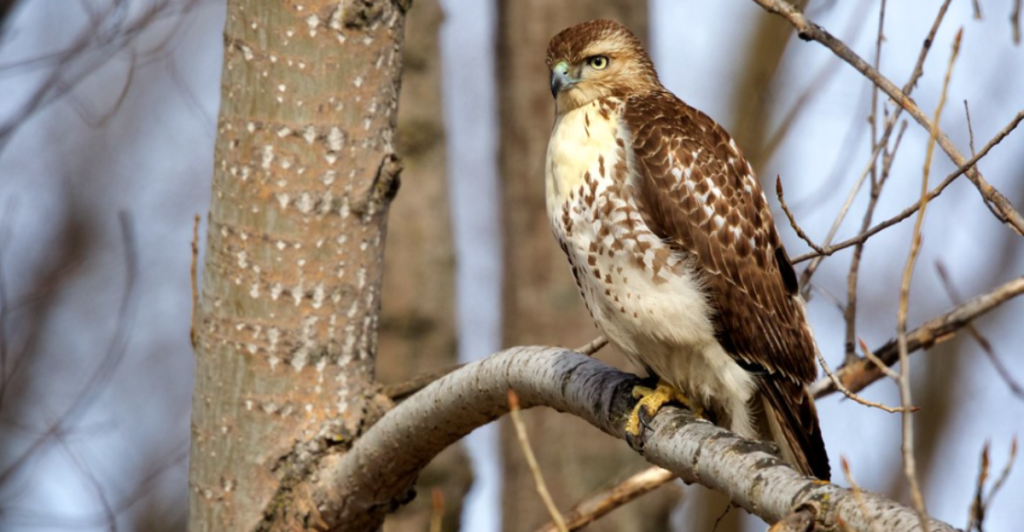
Red-Tailed Hawks are among the most common and easily recognized raptors in North America. They employ two primary hunting techniques: scanning for prey from an elevated perch before swooping down to seize it, watching for prey while flying and then pursuing it on the ground, or capturing birds in mid-air. These versatile hunters have also been observed hunting in pairs, sometimes stalking opposite sides of a tree to surround and capture tree squirrels.
2. Cooper’s Hawks
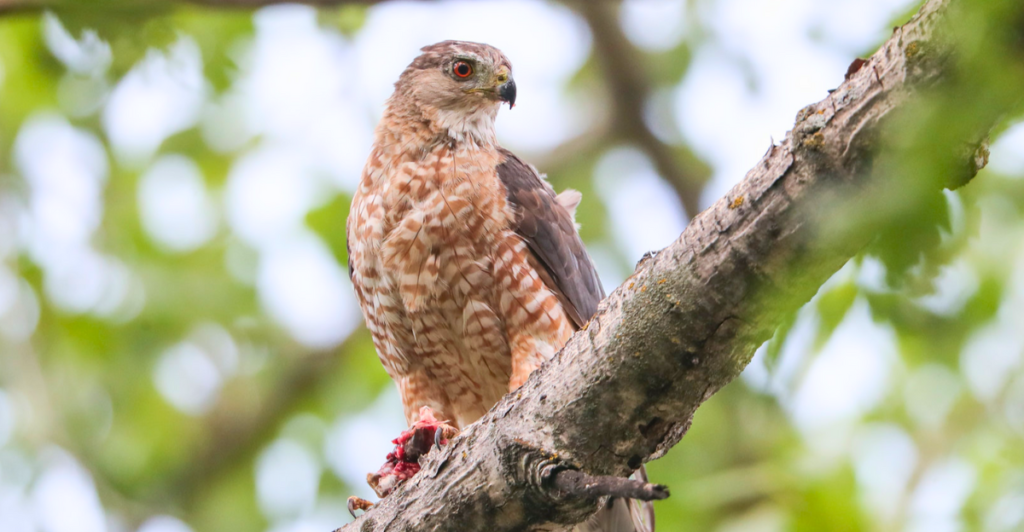
Cooper’s Hawks are known for their stealth and agility in hunting. These medium-sized hawks excel at aerial pursuit, particularly in forested areas. They often use a combination of quick, short flights and brief perching to navigate through dense vegetation, surprising their prey with sudden bursts of speed. Cooper’s Hawks primarily target smaller birds, using their maneuverability to chase and capture them in flight or on the ground.
3. Northern Goshawks
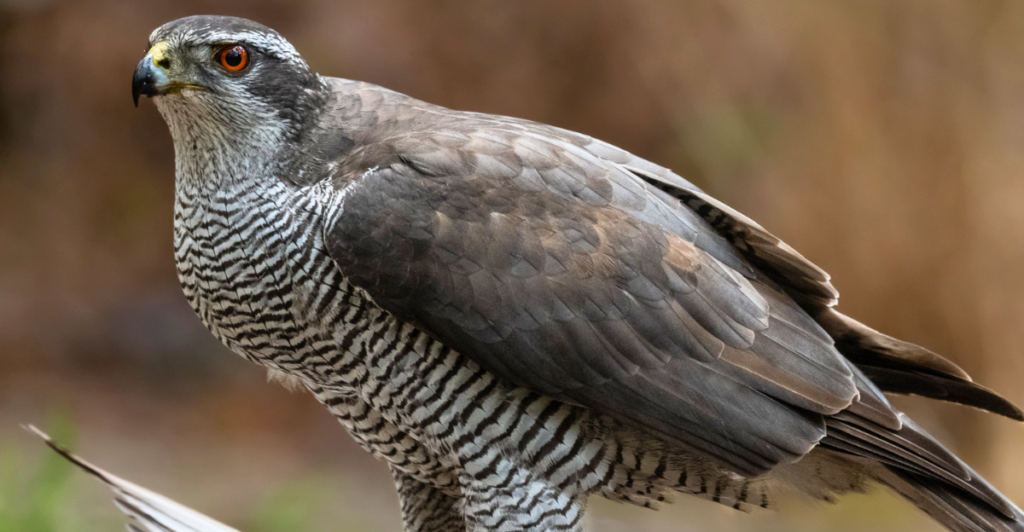
Northern Goshawks are powerful forest hunters that rely on ambush tactics. These raptors patiently wait in dense forest cover, using their exceptional vision to detect prey. Once a target is identified, the goshawk launches a swift, direct attack, often pursuing its quarry through thick vegetation. Their short, broad wings and long tails allow for remarkable agility in forested environments, enabling them to navigate tight spaces at high speeds.
4. Ospreys
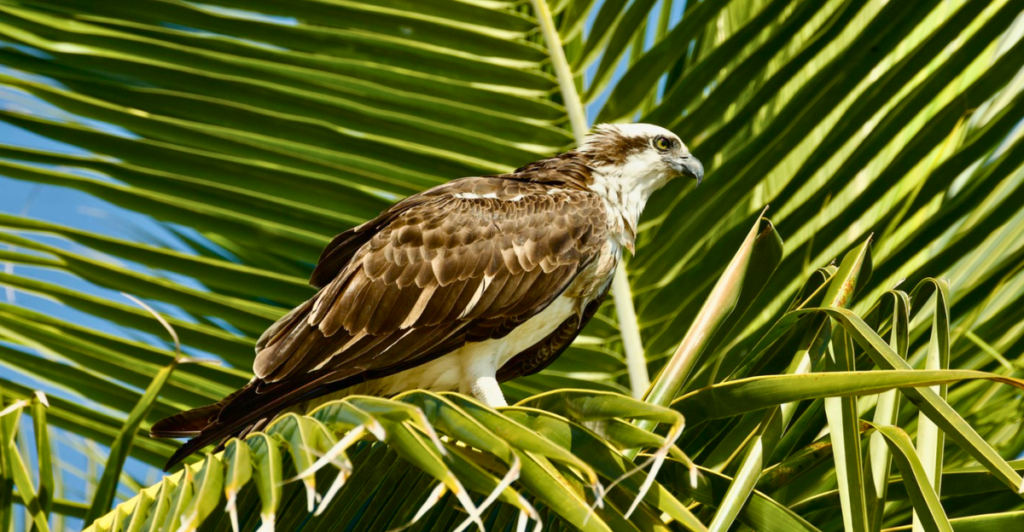
Ospreys are specialized fish hunters with unique adaptations for their aquatic prey. They soar 30-130 feet above water, using keen eyesight to spot fish near the surface. Once a target is identified, ospreys hover briefly before plunging feet-first into the water, using their specialized talons to grasp slippery fish. Their ability to close their nostrils underwater and their reversible outer toes make them incredibly efficient at catching and holding onto fish.
5. Great Horned Owls
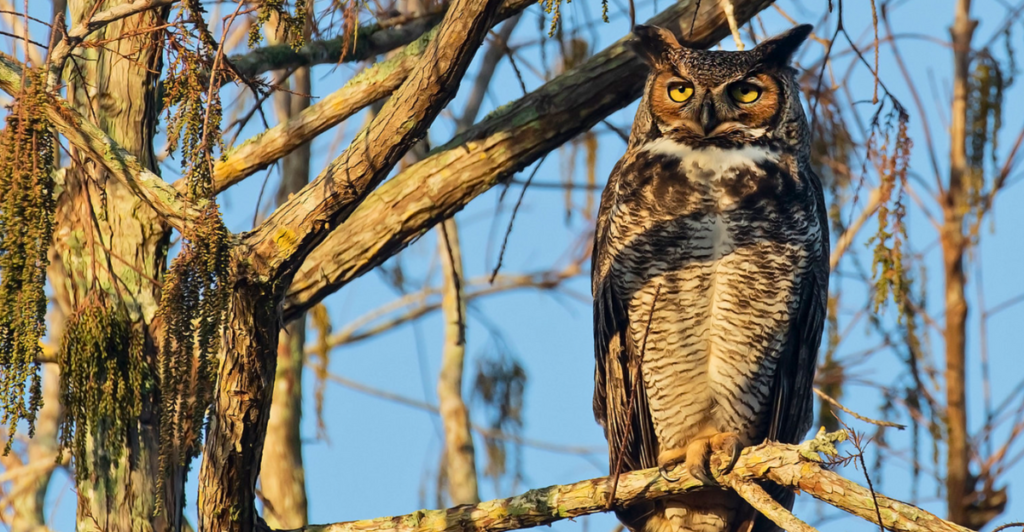
Great Horned Owls are formidable nocturnal hunters. They use their exceptional hearing and vision to locate prey in low-light conditions. These owls often hunt from a perch, silently gliding down to capture their target with powerful talons. Their diverse diet includes small mammals, birds, and even other raptors. Great Horned Owls are known for their strength, capable of catching prey much larger than themselves.
6. Bald Eagles
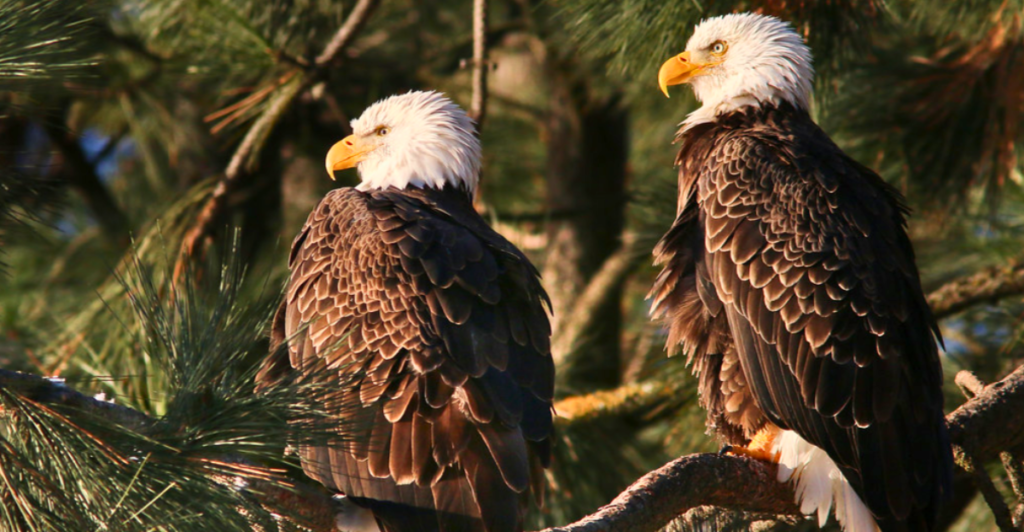
Bald Eagles are opportunistic hunters that employ various techniques. They often search for prey from high perches before swooping down to catch fish from the water’s surface with their talons. Bald eagles are also known to steal fish from other birds, particularly ospreys. This behavior is called kleptoparasitism.
7. Peregrine Falcons
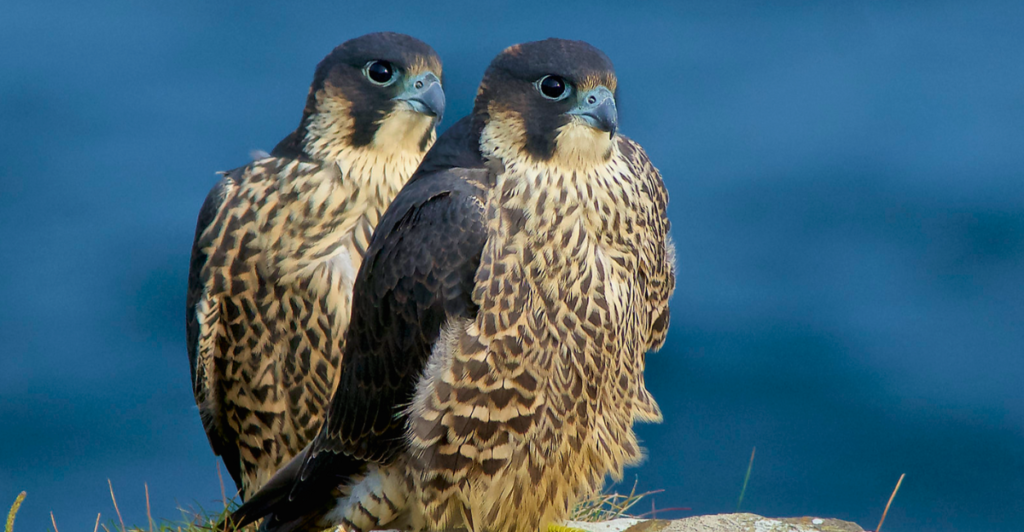
Peregrine Falcons are renowned for their high-speed hunting dives, called stoops. They soar to great heights before folding their wings and plummeting at speeds exceeding 200 mph. Peregrines typically strike their prey with their feet in mid-air, often killing them instantly from the impact. This spectacular hunting method makes them one of the most efficient aerial predators.
8. Golden Eagles
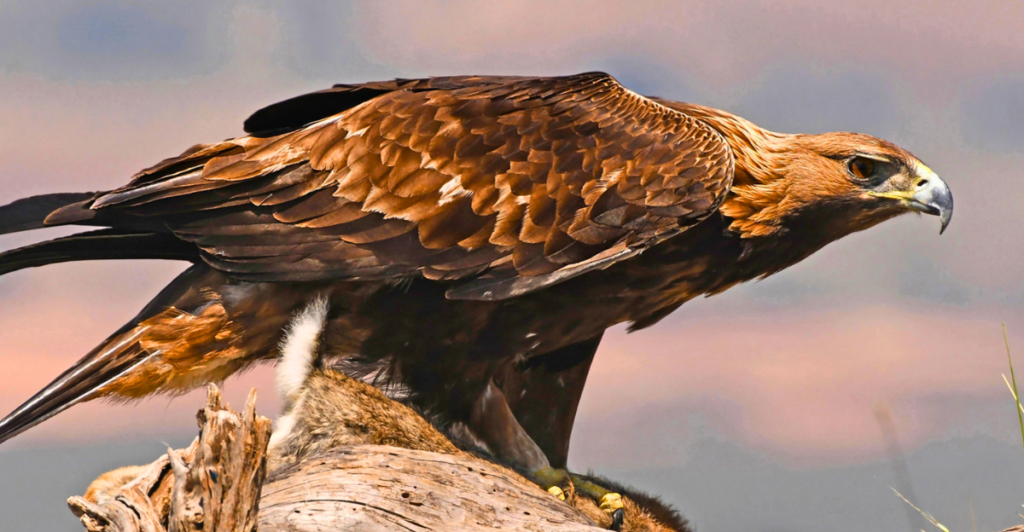
Golden Eagles are powerful hunters that use their size and strength to capture a variety of prey. They often hunt from soaring positions, using their excellent eyesight to spot potential targets. Golden Eagles may employ a technique called “contour hunting,” where they fly low over hillsides to surprise prey. They’re capable of taking larger animals like small deer or goats, using their powerful talons to subdue their quarry.
9. American Kestrels
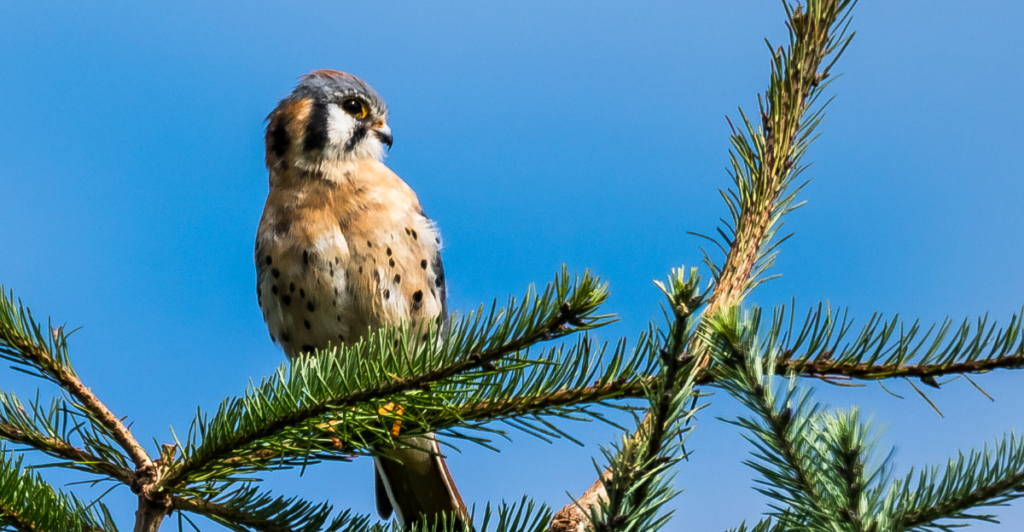
American Kestrels, despite their small size, are skilled hunters. They’re known for their unique hovering behavior, where they remain stationary in the air about 65 feet above the ground before diving onto their prey. This technique allows them to hunt effectively in open areas, targeting small mammals and insects. Kestrels also hunt from perches, scanning the ground for movement before swooping down to capture their prey.
10. Barred Owls
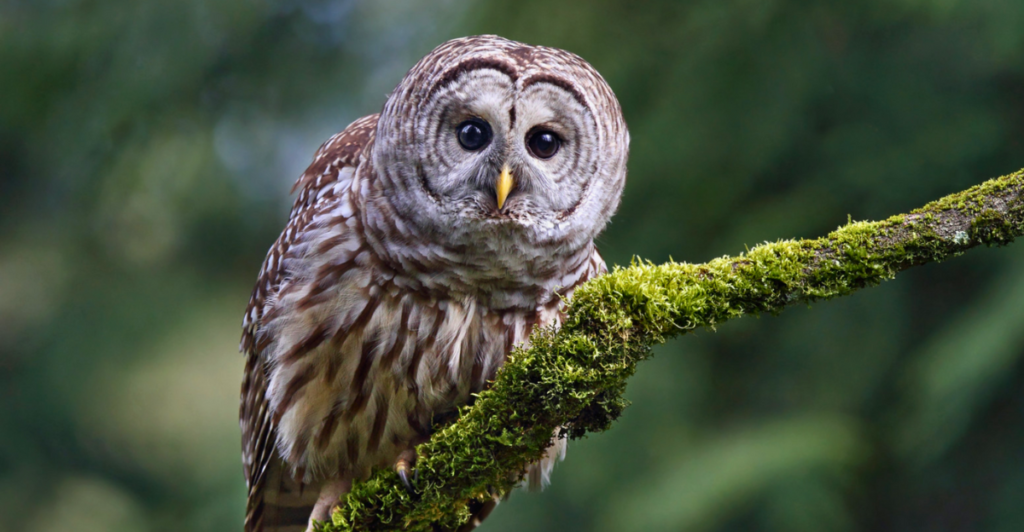
Barred Owls are adaptable hunters that thrive in various forest types. They use a sit-and-wait strategy, perching silently and using their acute hearing to detect prey movements. Barred Owls are capable of hunting both on the wing and on foot, sometimes wading into shallow water to catch aquatic prey. Their diverse hunting techniques allow them to exploit a wide range of food sources.
11. Honorable Mention: Red-shouldered Hawks
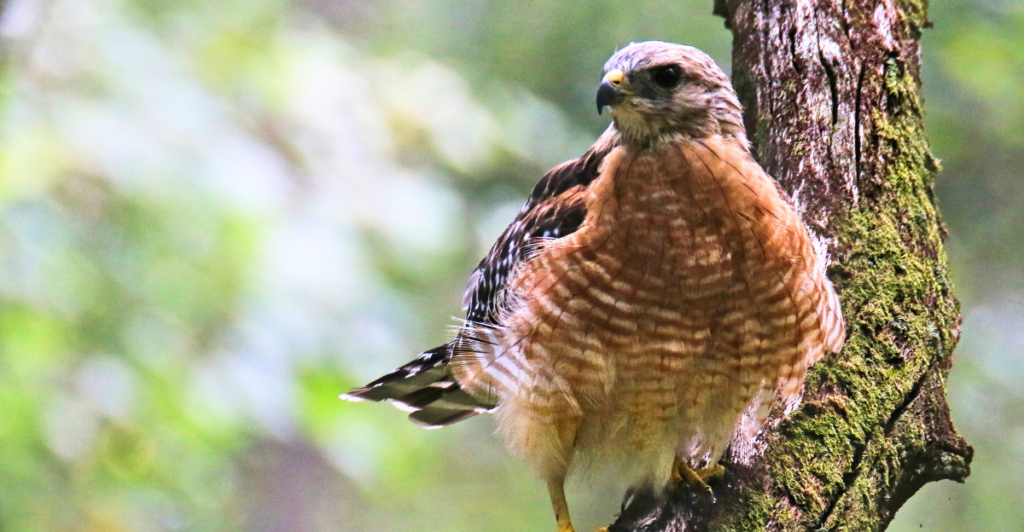
Red-Shouldered Hawks are agile forest hunters that employ a variety of techniques. They often hunt from perches, swooping down to capture prey on the ground or in low vegetation. These hawks are also known to catch prey in flight and will occasionally hunt on the wing, flying low over open areas to flush out small animals. Their diverse hunting methods and adaptability to different habitats contribute to their success as predators.
12. Honorable Mention: Turkey Vultures
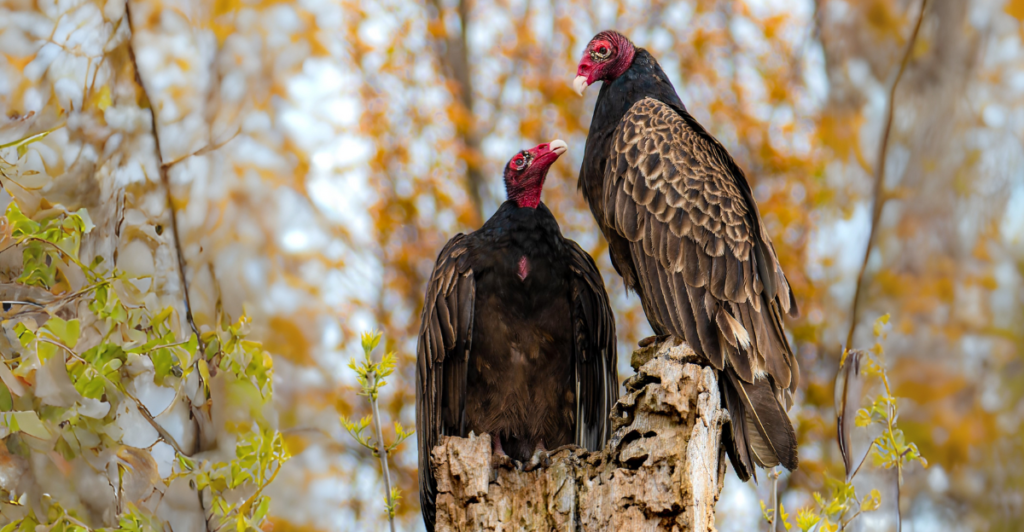
Turkey Vultures, while not typically considered birds of prey, are included due to their important role as scavengers. They don’t actively hunt live prey but instead use their keen sense of smell to locate carrion. Turkey Vultures soar on thermals, efficiently covering large areas in search of food. Their feeding habits play a crucial role in ecosystem health by helping to prevent the spread of disease.
Source:
10 Fearsome Birds Of Prey In America And Their Incredible Hunting Skills
Disclaimer: This article was written with the assistance of AI and was edited/fact-checked by a human.
Stay connected with us for more stories like this! Follow us to get the latest updates or hit the Follow button at the top of this article, and let us know what you think by leaving your feedback below. We’d love to hear from you!







